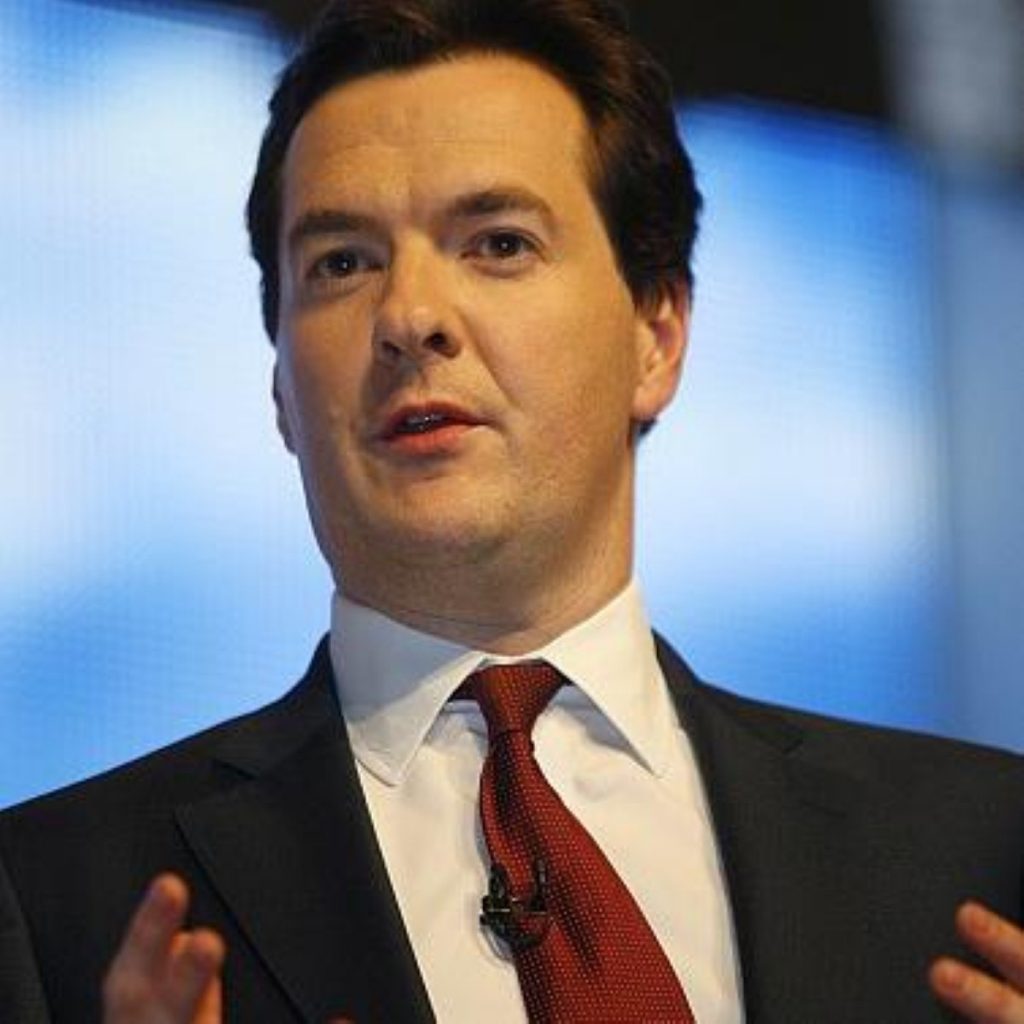Comment: Osborne speech
Someone must have told him not to smile.
George Osborne’s relationship with his smile today was that of a man covering up a wine stain by moving the carpet.
It often hovered around his lips, or appeared briefly in his eyes, but then was quickly smothered. Someone in Conservative HQ had made it very clear: whatever you do, don’t smile. Just one photo of a smirk and his grinning face would have been plastered over the papers, adding to the perception the Tories don’t really care about the poor and – with their wealth and familial connections – remain untouched by the new economic times.
So he didn’t smile. Mr Osborne’s speech was carefully crafted. It had to conquer two of the shadow chancellor’s fundamental weaknesses. Firstly, that he looks like a child, and secondly that Tories – especially Etonian Tories -really don’t care about the poor.


He conquered the first by doing his utmost to appear statesman-like. He spoke slowly and clearly, he kept an impeccably straight face – even during his jokes – and he charted a careful course between berating City bankers and reaffirming the importance of financial conservatism to the party faithful.
It actually worked rather well. He tagged City bankers with the word ‘irresponsible’ enough times to convince people he is not always necessarily on the side of the rich and powerful, but he dedicated the vast majority of his speech to highlighting exactly why the government was ultimately to blame.
The Tories are nothing if they are not media-savvy. They have realised the public aren’t really blaming the government for the current crisis, and don’t trust the Conservatives with the economy. Their reaction has been to go into overdrive on attaching blame to Gordon Brown, while unveiling a detailed set of proposals for how they would change things.
Some of those policies were interesting, especially the creation of a new Office for Budget Responsibility to keep government spending in check. Tory strategists clearly enjoyed its echoes of Mr Brown’s decision to make the Bank of England independent. But it does have weaknesses. For a start, it would create another layer of government bureaucracy just as they pledge to get rid of that kind of thing.
There was also the ominous lack of explanation of what the Conservatives would have done if they were in government. Mr Osborne blamed Mr Brown for not saving money during the boom times, and he expressed anger at the use of taxpayer’s money towards collapsing banks, but he didn’t say what he would have done instead. No one is particularly keen on nationalising huge banks and building societies, but very few people can see an alternative.
Mr Osborne’s strongest section revolved around an honest appraisal of what the Tories can and can’t do in government, given the state of the national purse. He wouldn’t be able to cut taxes, he admitted. He wouldn’t be able to do too much spending. It’s a recurring theme of the new Tory party – an economic version of David Cameron’s belief in the limits of government action in fixing Britain’s ‘broken society’. But it played well with the image of Mr Osborne as a wise and prudent future chancellor – not offering bribes or gimmicks to the public like Labour do and speaking honestly about the state of the nation.
And yet there was a bribe. It came at the very end. By cancelling Whitehall advertising and consultancy budgets, a Tory government would help local council’s freeze council tax for two years.
It’s one of those beautifully constructed Conservative policies you can’t help but admire for its sheer political brilliance. Cancelling Whitehall advertising plays into disgruntlement over the Blair era’s obsession with image – an obsession Cameron has fully signed up to, of course, but no need to go into that now.
Council tax itself is a perfect target. It is universally hated by rich and poor alike.
And it is also a genius move for the political life of the Conservatives in two years’ time. If a Labour council despises working with a Tory government so much it cannot bring itself to sign up to the deal, the Tories will point at the savings families make in Tory constituencies as evidence of Labour’s failure. If they do work with them, the Tories will revel in the political humiliation it entails.
Will it be enough to convince a cynical public the Tories have the right attitude to these new times? It’s a hard one to call. Labour finds itself on the popular side of the argument – an overwhelming emphasis on bringing the banking sector under control. But it cannot quite explain why Britain is being hit so hard by this crisis.
The Tories can explain that, by blaming Labour for government overspending, and they have some compelling solutions. But they cannot comfortably say the words the public wants to hear – words like ‘fat cat’ and ‘spiv’.
Today may not be enough. Perhaps the Tories are doomed to lose on the issue of the economy, meaning they had better hope it figures less prominently in the news by the time a general election rolls around. But Mr Osborne’s performance and the policies he mentioned were both very impressive. If the party can’t reclaim the issue with today’s events, it may have to give up on it altogether.
Ian Dunt









